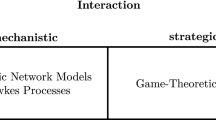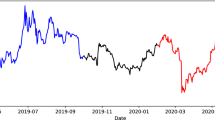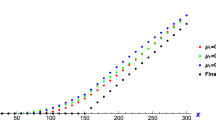Abstract.
The hedging of contingent claims in the discrete time, discrete state case is analyzed from the perspective of modeling the hedging problem as a stochastic program. Application of conjugate duality leads to the arbitrage pricing theorems of financial mathematics, namely the equivalence of absence of arbitrage and the existence of a probability measure that makes the price process into a martingale. The model easily extends to the analysis of options pricing when modeling risk management concerns and the impact of spreads and margin requirements for writers of contingent claims. However, we find that arbitrage pricing in incomplete markets fails to model incentives to buy or sell options. An extension of the model to incorporate pre-existing liabilities and endowments reveals the reasons why buyers and sellers trade in options. The model also indicates the importance of financial equilibrium analysis for the understanding of options prices in incomplete markets.
Similar content being viewed by others
Author information
Authors and Affiliations
Additional information
Received: June 5, 2000 / Accepted: July 12, 2001¶Published online December 6, 2001
Rights and permissions
About this article
Cite this article
King, A. Duality and martingales: a stochastic programming perspective on contingent claims. Math. Program. 91, 543–562 (2002). https://doi.org/10.1007/s101070100257
Published:
Issue Date:
DOI: https://doi.org/10.1007/s101070100257




